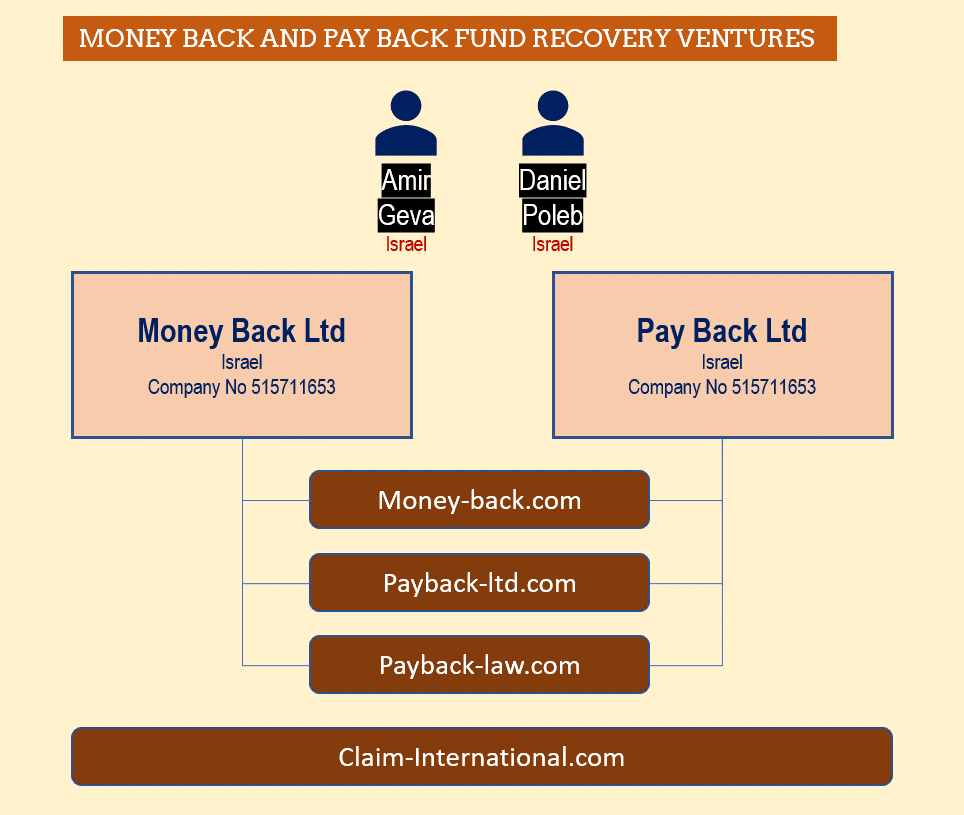We have already published a review about the Israeli fund recovery service Pay Back (https://payback-ltd.com) a/k/a PayBack (https://www.payback-law.com) a/k/a Money Back (https://money-back.com) owned by Amir Geva and Daniel Poleb. It is no secret that we are very skeptical when fund recovery services ask victims for several thousand euros or dollars down payment and, in addition, profit sharing. In many cases, it would be easier for victims to go directly to the relevant financial ombudsman and reclaim the money from the facilitating bank. This is also confirmed by the following report from a Financial Ombudsman.
The Ombudsman Report
Pay Back a/k/a Money Back is a definite scam. They charge people 10% of the funds they have lost upfront and request more if the victim actually manages to recover funds. The way it works is this:
- The victim has lost, say, $20,000.
- They google and come across Pay Back, making unrealistic promises of full recovery in 89% of cases (sound like an investment scam?).
- To get this, they need to pay Pay Back $2,000 upfront; In exchange, they get a template complaint letter filled with copy/paste legalese and extracts from irrelevant regulations, etc.
- The victim fills in the blanks and sends them to their bank.
- If the bank doesn’t give a refund, Pay Back directs the victim to raise the complaint with the local ombudsman/regulator, using the same template.
- In some cases, the ombudsman investigates and directs the bank to provide a refund (if the bank has made an error).
- Pay Back then demands further payment from the victim. So in a way, there is sometimes SOME recovery for the victim.
The issue is, the ombudsman service is free, and the victim could have done all of this without paying any money to Pay Back. The template actually hinders the ombudsman investigation because it buries the relevant information between pages of useless pseudo-legal arguments.
The outcome the ombudsman provides has nothing to do with Pay Back‘s arguments, and the victim could have actually retained all the funds the bank was told to refund if it wasn’t for Pay Back‘s involvement. In some cases, payback will even persuade victims not to accept reasonable goodwill offers from the bank because it is not worth the time for payback (e.g., 10% of $2,000 refunded).
I know, because I work for an ombudsman’s office and deal with payback-assisted complainants all the time.
Our Conclusion

Fund recovery is big business for attorneys and unregulated providers like Pay Back a/k/a Money Back. When using the services, victims must first pay a lot of money again with no guarantee of success. In case (however) money is recovered, victims have to pay a significant percentage again as a success fee. The business is not illegal at first, but the practices are often unethical and questionable.
We are sure that Pay Back a/k/a Money Back‘s stated success rates are not true. Allegedly, Pay Back has returned 100% of funds to 89% of its clients. Such statements indeed point to an investment scam approach; we agree with the ombudsman.
In many cases, it is probably better for victims to go to the relevant ombudsman first and get free advice. Especially if regulated financial institutions are involved. Apparently, the ombudsman services (except in Cyprus) are best suited to enforce financial claims against facilitating banks and payment processors.
